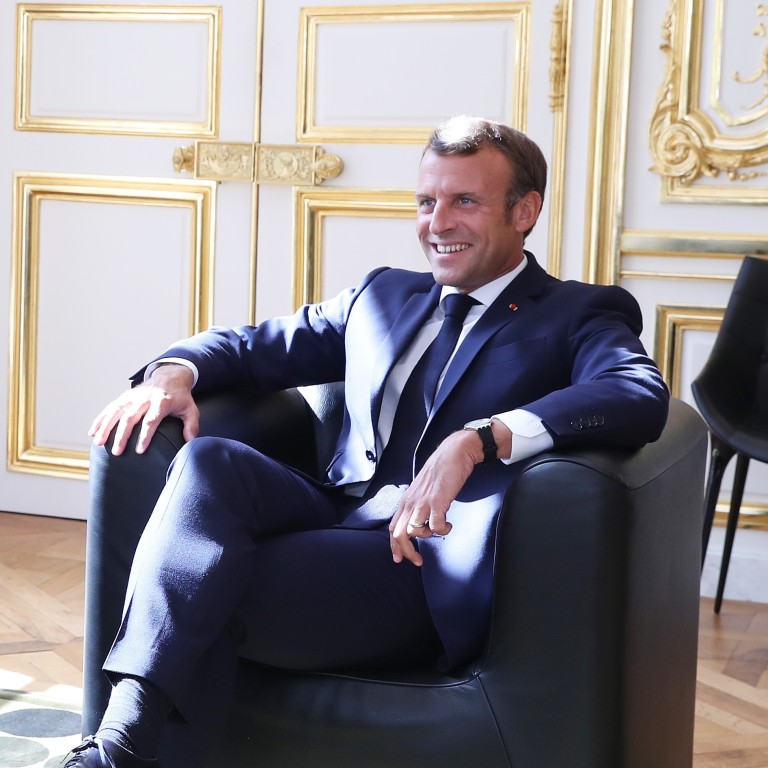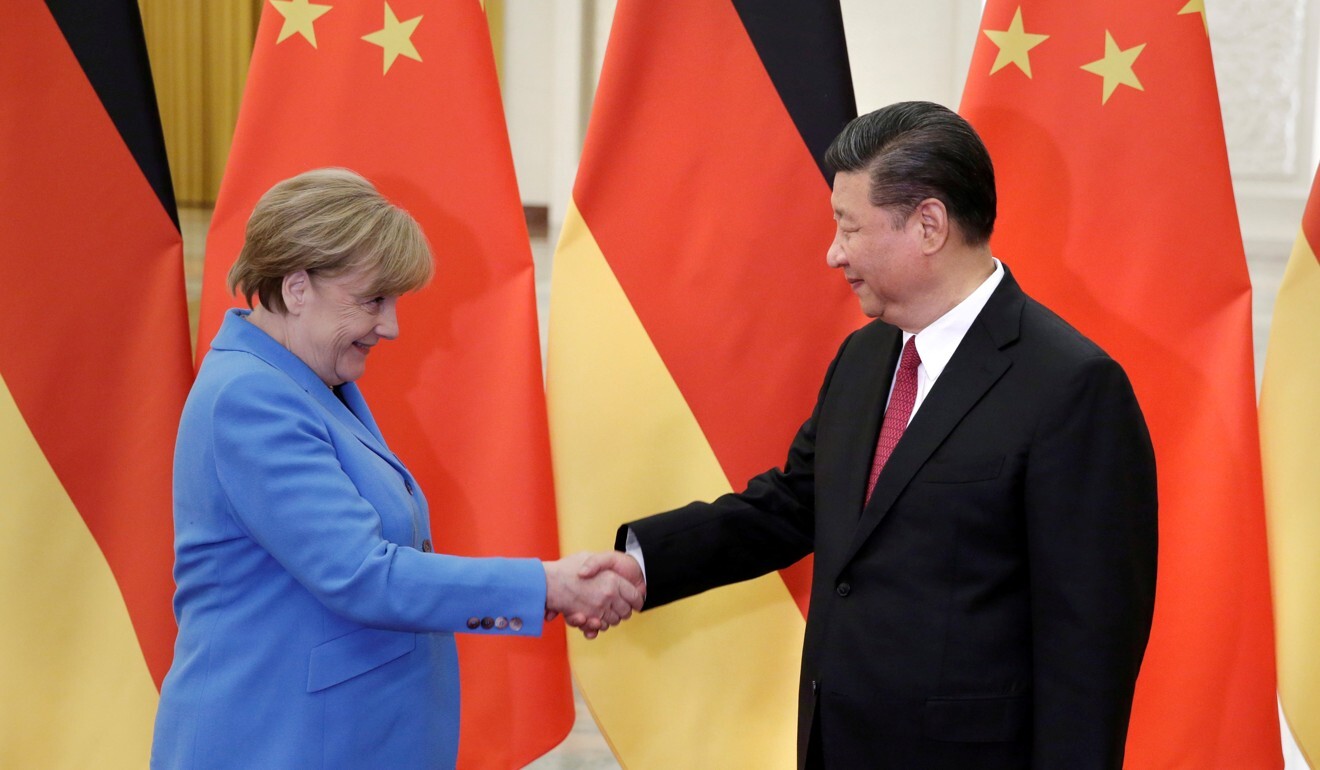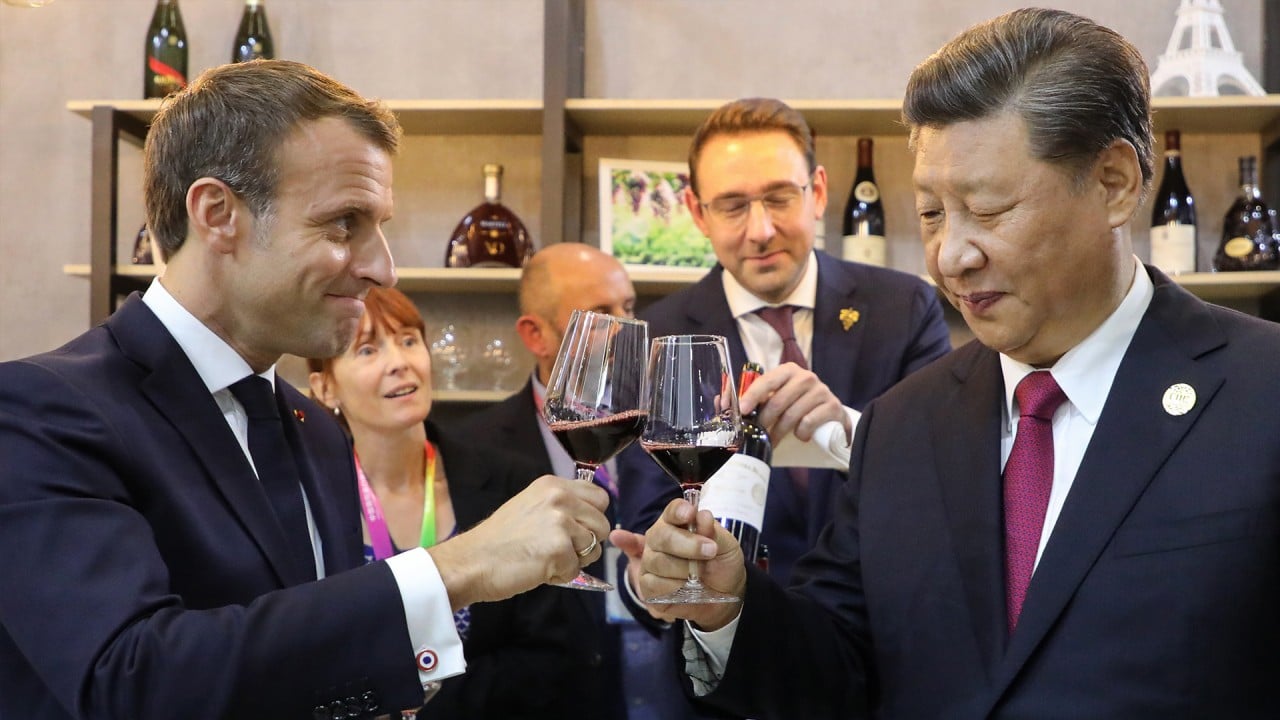
China-EU ties: all eyes on Macron as Merkel prepares to hand over policy reins
- France will assume the EU Council presidency just as a new investment pact with Beijing is expected to come into effect
- French president is advocate of engagement with China but says the West should not be naive about the country
Macron took part in the ceremony at the invitation of Merkel, who represented Germany, which was the holder of the EU Council presidency until the day after the China deal was signed.
After the signing, the French president said: “The dialogue between Europe and China has strengthened and become more balanced these past few years. It continues.”

Merkel has been the main proponent of the investment agreement but it will be up to Macron to help drive its implementation, with the deal expected to take effect in 2022 during France’s presidency of the EU Council.
“With the German political transition in late 2021 while France will be preparing its presidency of the EU Council, President Macron will become the key European interlocutor to China,” said Antoine Bondaz, a China specialist at the Paris-based Foundation for Strategic Research.
“The council presidency in the first half of 2022 will be crucial if France wishes to make European unity in China policy one of its priorities, at a time when Europeans continue to underestimate their own strengths.”
China-EU relations: Xi tells Macron he hopes Europe can be positive about Beijing
Mikko Huotari, executive director of the Mercator Institute for China Studies, a Berlin-based think tank, agreed, saying: “Macron will certainly use the opportunities offered by less UK involvement and the French presidency [of the EU Council] in 2022 to give Europe-China policy more of a French touch.”
Macron has been a key advocate of engagement with China on slowing carbon emissions – a major foreign policy priority for France, where the world’s main climate change accord was sealed in 2015.

But he has also repeatedly called it naive for the West to cast China in a positive light. In 2019, he called for an “end to European naivety” on China, and insisted that the EU adopt a coordinated approach to the country.
Then in April this year, he again used naive to describe the belief that China handled the coronavirus pandemic better than the West.
“There are clearly things that have happened that we don’t know about,” he said.
China-EU investment deal: Joe Biden repeats call for ‘coordinated approach’ to handle Beijing
In terms of EU-level foreign and security policies, Macron has been a vocal proponent of strategic autonomy, a term generally meant as the antithesis of a transatlantic alliance with the US.
Beijing has repeatedly praised France for upholding strategic autonomy. During his visit to Paris last summer, Foreign Minister Wang Yi said: “We are pleased to see strategic autonomy in Europe, with a view to providing more stability. On this, China stands together with France, and with Europe.”

01:38
Xi and Macron sip wine together in Shanghai trade fair
But an EU diplomatic source told the South China Morning Post that the call for strategic autonomy did not mean taking a soft line on China.
“The latest investment deal is all about making China open up its market access. I’d be surprised if Beijing looks at it too positively.”
In addition, French newspaper Le Monde reported on Wednesday that Paris had made it clear to Ursula von der Leyen, head of the European Commission, that there was no need to rush in any talks with China, an opinion also shared by the Netherlands.
US and EU demand China release Zhang Zhan, who covered Wuhan outbreak
Looking ahead, there has been speculation for months that Macron and Merkel might visit Beijing together this year.
Whatever happens, Germany is still expected to continue to play a big role in EU-China policies even after the departure of Merkel, whose successor is due to take the helm in the autumn.
“The basic power dynamics and weight of German interdependence with China as the core engine would not change. Whoever will be the next chancellor in Berlin will claim this field as a key foreign policy priority for Germany,” Huotari said.

